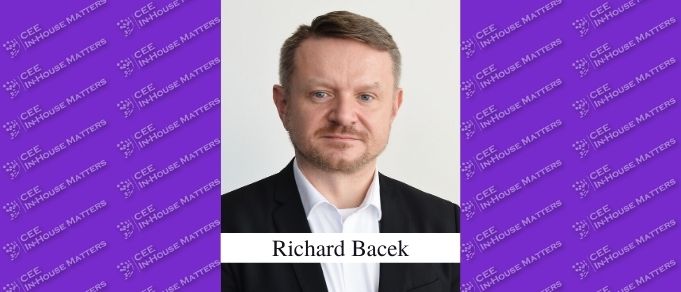Siemens General Counsel for the Czech Republic and Slovakia Richard Bacek talks about his transition from law firms to in-house and ongoing challenges including navigating new legislation, such as cybersecurity regulations.
CEELM: Tell us about your career path leading to your current role as general counsel for the Czech Republic and Slovakia at Siemens.
Bacek: I’ve been with Siemens for 15 years, joining in 2009. Previously, I spent 15 years as an attorney at various law firms, focusing on corporate M&A, public procurement, and competition law. Now, as the General Counsel, I manage legal matters for Siemens in the Czech Republic and Slovakia.
CEELM: What were the biggest adjustments in transitioning from a law firm to the private sector?
Bacek: The biggest challenge involved understanding Siemens’ business operations in greater detail than needed by a law firm, where external clients were the primary focus. Here, I needed to grasp the intricacies of internal processes.
My motivation comes from Siemens’ positive work environment, where employees are valued and integrated into the business, directly contributing to its success. Seeing the results of our legal work empowering colleagues and leading to positive outcomes is highly motivating.
Last, but not least, one of the most significant changes was achieving a better work-life balance.
CEELM: How large is your in-house legal team, and how is it structured?
Bacek: The Siemens in-house legal team across the Czech Republic and Slovakia comprises roughly 10 people. Each member has specific responsibilities aligned with particular business units and companies.
CEELM: How do you decide when to outsource legal work?
Bacek: We primarily rely on our in-house team. We outsource only when specialized expertise is needed that we lack internally, or when tasks offer minimal added value for our lawyers. Examples of outsourced tasks include debt collection, routine filings, and insolvency proceedings. We may also outsource for specific cases requiring unique expertise not readily available within the team or that wouldn’t be beneficial for them to learn due to limited future use.
CEELM: What criteria do you use when selecting external counsel?
Bacek: We have a panel of law firms reviewed and selected every four years according to company policy. We choose from these pre-vetted firms based on their specific expertise in the relevant area. Expertise is the primary criterion – we need firms that can assist us without needing to learn the subject matter on our dime. Price is a secondary factor considered only when multiple firms offer similar expertise.
CEELM: What has kept you and your team busy lately, and what’s on the horizon? What potential issues do you see impacting your workload the most?
Bacek: Our core function is supporting the business through contract and claim management, a collaborative effort by our legal team. We also address new legal issues implemented nationally or within the organization. Contract and claim management form the bedrock of our work.
Over the past year in the Czech Republic and Slovakia, the implementation of the whistleblowing act and new cybersecurity regulations have been key areas of focus, along with maintaining strong relationships with our business units. As a B2B company, our work differs from the retail sector. Our focus is on specific business units within client companies.
Looking ahead, we anticipate new regulations in cybersecurity and artificial intelligence impacting our workload. Additionally, we’ll need to adapt to developments in digitalization and technological advancements.
CEELM: What are the main challenges you foresee for general counsels in Czechia and Slovakia?
Bacek: Consistent monitoring and implementation of the new legislation will be an ongoing challenge, particularly for multinational companies compared to local firms. While we benefit from cross-border collaboration within Siemens, EU-based legislation often undergoes significant variation during implementation in individual countries. This necessitates local legal reviews and adaptations even for seemingly straightforward EU regulations.
Economic conditions will also play a role. During economic downturns, claim management becomes more critical. Conversely, a thriving economy reduces the need for claim management and debt recovery efforts. Ideally, with customers paying on time, our involvement is minimized.
Contract and claim management are ongoing processes, not one-time actions. Additionally, potential new legislation regarding ESG is on the horizon, though the timing and specifics remain unclear. This will be a topic of discussion within Siemens and the broader legal community.
This article was originally published in Issue 11.4 of the CEE Legal Matters Magazine. If you would like to receive a hard copy of the magazine, you can subscribe here.


